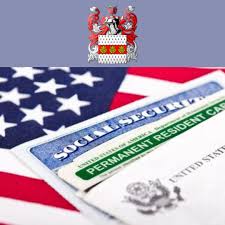
Understanding the Criteria
A primary challenge in EB1 applications is meeting the stringent criteria set by the United States Citizenship and Immigration Services (USCIS). Applicants must demonstrate extraordinary ability, be an outstanding professor or researcher, or be a multinational executive or manager. Each category has specific requirements that can be difficult to interpret and satisfy.
Documentation Overload
Compiling the necessary documentation to prove extraordinary ability or exceptional qualifications can be overwhelming. Applicants often need to provide extensive evidence including awards, publications, letters of recommendation, and proof of employment. Ensuring that all documents are relevant, current, and properly formatted is crucial but challenging.
Proving Extraordinary Ability
For those applying under the extraordinary ability category, one of the most significant hurdles is proving that their accomplishments are at the very top of their field. This often involves not just national but international recognition. Applicants sometimes struggle to present their achievements as both substantial and unique.
Recommendation Letters
Gathering strong letters of recommendation is another common obstacle. These letters must come from credible sources who can attest to the applicant's contributions to their field convincingly. The quality and persuasiveness of these letters can significantly impact the application’s success.
Navigating Legal Complexities
The legal intricacies of EB1 applications can confuse even well-prepared applicants. Misinterpretations of legal requirements or procedural errors can delay or derail an application process. Many applicants choose to work with an EB1 lawyer to navigate this complexity effectively.
Timing Issues
Timeliness is key in EB1 applications; however, compiling a thorough application takes considerable time. Delays in gathering documentation or slow responses from referees can push back submission dates which may affect eligibility particularly if visa policies change or quotas are filled.
The Role of Legal Representation
Given these challenges, securing competent legal representation becomes essential. An experienced EB1 lawyer not only guides applicants through complexities and helps interpret criteria correctly but also ensures that all paperwork is complete, persuasive, and submitted on time. Choosing the right attorney can make a significant difference in overcoming these common obstacles.
Frequently Asked Questions
What are the key evidentiary requirements for an EB1 application?
The EB1 visa category demands substantial evidence to demonstrate extraordinary ability, outstanding professor or researcher credentials, or multinational executive/managerial position qualifications. Applicants must provide documentation such as awards, publications, membership in associations, and proof of high remuneration.
How does the USCIS evaluate the "extraordinary ability" criterion?
The USCIS evaluates "extraordinary ability" by reviewing evidence that the applicant has received major internationally recognized awards or meets at least three out of ten specific criteria demonstrating national or international acclaim in their field.
What are common reasons for EB1 application denials?
Common EB1 denial reasons include insufficient evidence to meet the stringent criteria, not clearly demonstrating that the achievements are nationally or internationally recognized, and failure to show sustained acclaim. Applications might also be denied due to procedural errors such as incorrect filing fees or incomplete forms.